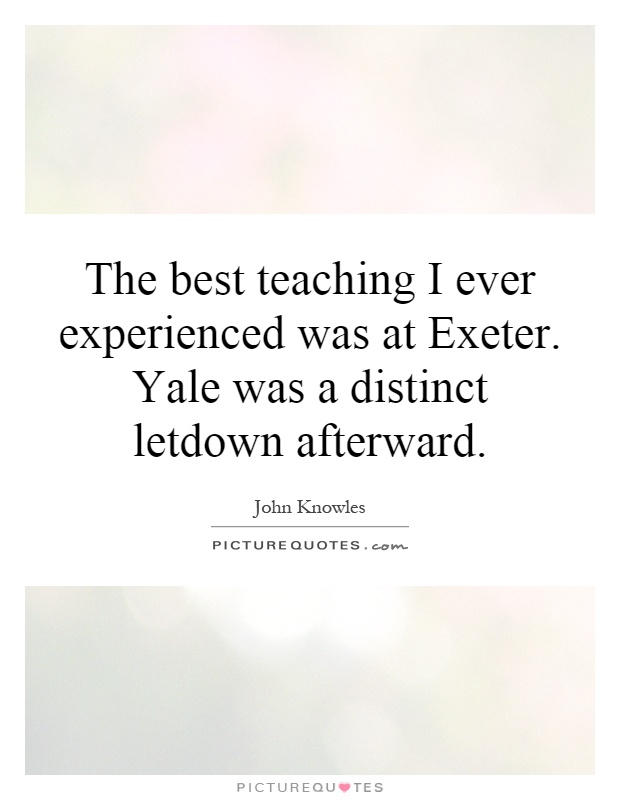The best teaching I ever experienced was at Exeter. Yale was a distinct letdown afterward

The best teaching I ever experienced was at Exeter. Yale was a distinct letdown afterward
John Knowles, the renowned author of the classic novel "A Separate Peace," attended Phillips Exeter Academy before going on to Yale University. In his memoir "Double Vision: American Thoughts Abroad," Knowles reflects on his educational experiences at both institutions and the impact they had on his development as a writer.Knowles describes the teaching he received at Exeter as the best he ever experienced. The faculty at Exeter were dedicated, passionate, and deeply engaged in their subjects. They challenged their students to think critically, to question assumptions, and to push themselves beyond their comfort zones. Knowles credits his teachers at Exeter with instilling in him a love of literature and a desire to pursue writing as a career.
In contrast, Knowles found his experience at Yale to be a distinct letdown after the rigorous intellectual environment of Exeter. He describes the teaching at Yale as lackluster, with professors who seemed more interested in their own research than in engaging with their students. Knowles felt that the academic atmosphere at Yale was more focused on competition and status than on genuine learning and growth.
Knowles' disappointment with Yale is reflected in the character of Gene Forrester in "A Separate Peace." Gene attends a prestigious New England boarding school that bears a striking resemblance to Exeter, where he forms a close friendship with his roommate Finny. However, the idyllic world of their friendship is shattered by jealousy and betrayal, mirroring Knowles' own disillusionment with the elite academic institutions he attended.
Despite his mixed feelings about Yale, Knowles acknowledges that his time there was not without value. The experience of feeling let down by a revered institution forced him to confront his own expectations and assumptions about education and success. This struggle ultimately deepened his understanding of himself and his place in the world, shaping the themes and characters that would come to define his literary career.












 Friendship Quotes
Friendship Quotes Love Quotes
Love Quotes Life Quotes
Life Quotes Funny Quotes
Funny Quotes Motivational Quotes
Motivational Quotes Inspirational Quotes
Inspirational Quotes